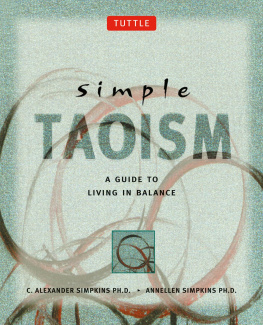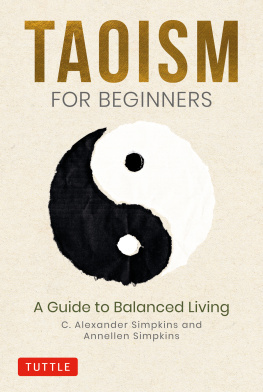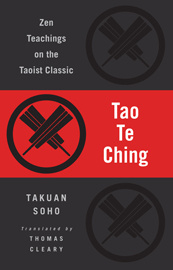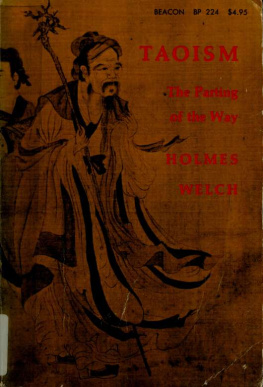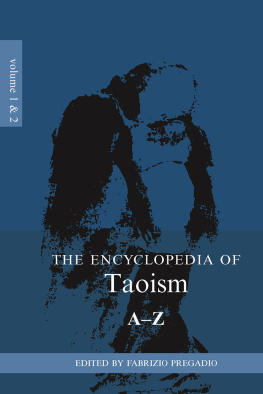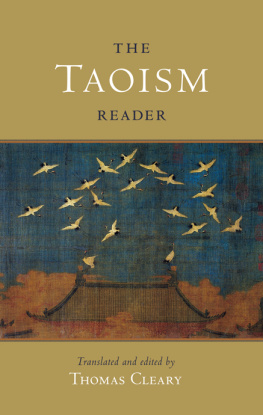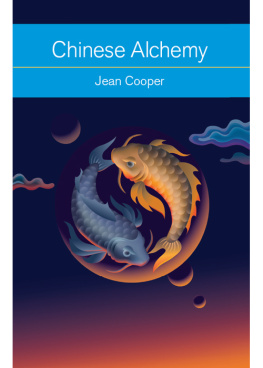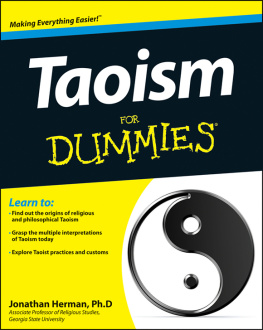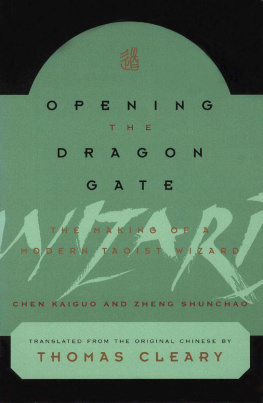Jordan Jacobs - Taoism: A Friendly Beginners Guide On Taoism And Taoist Beliefs (Taoism - Taoist - Eastern Religion - Psychotherapy - Buddhism)
Here you can read online Jordan Jacobs - Taoism: A Friendly Beginners Guide On Taoism And Taoist Beliefs (Taoism - Taoist - Eastern Religion - Psychotherapy - Buddhism) full text of the book (entire story) in english for free. Download pdf and epub, get meaning, cover and reviews about this ebook. year: 2015, genre: Religion. Description of the work, (preface) as well as reviews are available. Best literature library LitArk.com created for fans of good reading and offers a wide selection of genres:
Romance novel
Science fiction
Adventure
Detective
Science
History
Home and family
Prose
Art
Politics
Computer
Non-fiction
Religion
Business
Children
Humor
Choose a favorite category and find really read worthwhile books. Enjoy immersion in the world of imagination, feel the emotions of the characters or learn something new for yourself, make an fascinating discovery.

- Book:Taoism: A Friendly Beginners Guide On Taoism And Taoist Beliefs (Taoism - Taoist - Eastern Religion - Psychotherapy - Buddhism)
- Author:
- Genre:
- Year:2015
- Rating:5 / 5
- Favourites:Add to favourites
- Your mark:
Taoism: A Friendly Beginners Guide On Taoism And Taoist Beliefs (Taoism - Taoist - Eastern Religion - Psychotherapy - Buddhism): summary, description and annotation
We offer to read an annotation, description, summary or preface (depends on what the author of the book "Taoism: A Friendly Beginners Guide On Taoism And Taoist Beliefs (Taoism - Taoist - Eastern Religion - Psychotherapy - Buddhism)" wrote himself). If you haven't found the necessary information about the book — write in the comments, we will try to find it.
A Friendly Beginners Guide On Taoism And Taoist Beliefs
Taoism teaches the basic principles of living a long and healthy life. The Taoist principles help us understand the inseparable nature of the self and the nature of the cosmos, to participate in the natural flow of events. To gain knowledge about Taoism is the cultivation of a thought process of growth, self-exploration, transformation, and to link our inner self with the surrounding world. This is the way to engage ourselves in the realm of the Tao.
What are the implications of Taoism in our daily life? Can we apply the principles of Yang and Yin in our personal life? If we wish to enter the realm of Tao, we need to have the willingness to accept the natural flow of activities and events. If we are aware to the ever-changing facets of nature, we will have the strength to create harmony. If we arent aware, we will be affected by self-conflicts due to the circumstances.
The first principle of Taoism is to develop an awareness of the natural things and understand these are interconnected as a part of the whole universe. The universal viewpoint states that everything is Tao. Good fortune is Tao, misfortune is also Tao. We must not pit one side against another, but urge ourselves to determine a relationship between the opposites. There is a popular idiom, there are two sides of a coin. Following this principle, you must appreciate both situations; it helps us embrace the situation. People become empathic as they understand the other side of the experience and imagine how they would react in a similar situation.
Secondly, you must recognize and embrace the natural flow of change. People struggle often as they cannot accept failure. If we recognize the cause of the failure, we will try to overcome the weaknesses and are able to solve problems at the early stages. The natural wisdom enables us to act appropriately. If we harmonize with the dynamics of nature, we will learn to let go off our interpretations and stereotypical thinking.
Nature comprises of opposites. It does not practice discrimination, moral judgments that usually are the cause of several health disorders. By not clinging to one polarity, an individual is able to view a crisis situation as a growth opportunity. You generally develop an optimistic view of life. Cooperation with the ultimate unity of opposites enables people to accept the various facets of human existence that follow the path of the Tao.
Do you experience imbalances in your personal life? Are you a workaholic? Do you feel balanced emotionally? Do you have time to spend with yourself?
If you are able to answer these questions, you may require a change in your life. Try adopting the Taoist principles and experience a long and healthy life.
What you will learn after purchasing Taoism
Awakening the Tao in your life
Doctrines of Taoism
Taoism: A deeper insight
Taoism in present day
Mindfulness and Taoism
Taoism for leadership
Embracing Taoism
Taoism in psychotherapy
The life of a Tao
Invincible Taoism
Taoism as seen by Lao Tzu
Want to Know More?
Download Your Copy Right Now!
Just Scroll to the top of the page and select theBuyButton. Or Download for FREE with Kindle Unlimited!!
Jordan Jacobs: author's other books
Who wrote Taoism: A Friendly Beginners Guide On Taoism And Taoist Beliefs (Taoism - Taoist - Eastern Religion - Psychotherapy - Buddhism)? Find out the surname, the name of the author of the book and a list of all author's works by series.

